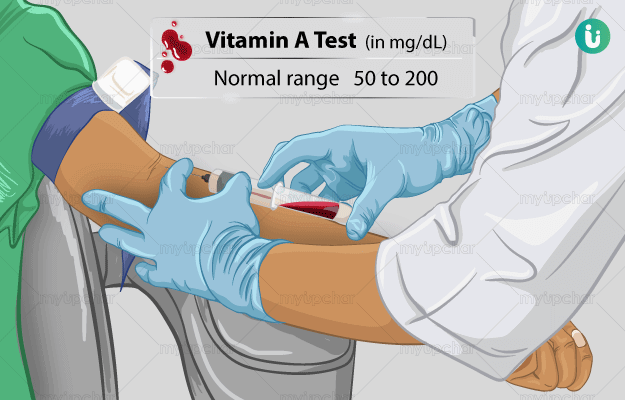What is a Vitamin A test?
Also known as the Retinol test, this test measures vitamin A levels in the body. It assesses both the excess and deficiency of vitamin A.
Vitamin A is mainly stored in the fat tissues and liver. It is necessary for:
- Development of bones
- Proper functioning of the immune system
- Production of photoreceptors in eyes
- Maintaining the integrity of skin
- Maintaining the lining of mucous membranes, like the surface of eyes
- Maintaining a healthy vision
Vitamin A deficiency is very rare. It is mostly caused by long periods of inadequate amount of vitamin A in the diet. However, it can also happen due to fat malabsorption or liver disorder. In the elderly, chronic alcoholism can also lead to vitamin A deficiency. One of the earliest and serious manifestations of which is night blindness.






























